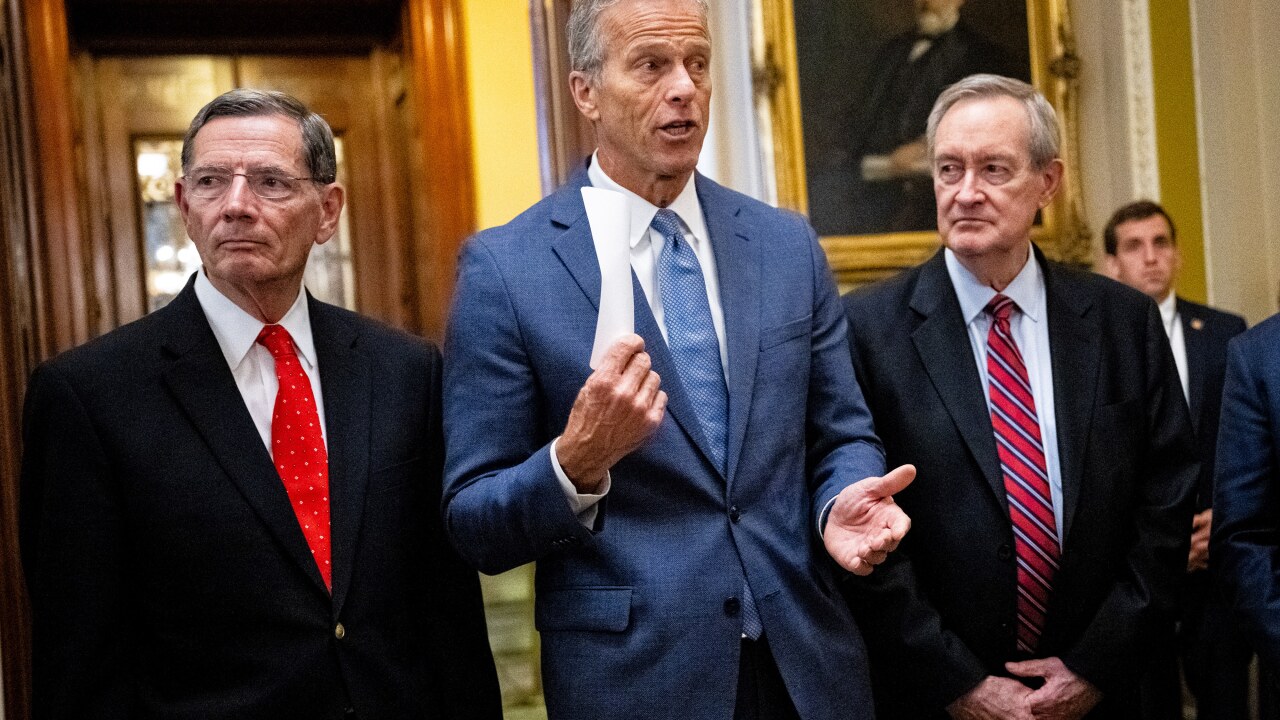The opportunities to make bets on failed Nevada banks are dwindling, drawing out-of-state buyers into the market before the game closes.
Plaza Bank in Irvine, Calif., formerly a struggler itself, last week bought SouthwestUSA Bank in Las Vegas from the Federal Deposit Insurance Corp., continuing the trend of out-of-towners picking up failures in the Silver State.
Despite the crash of its real estate market and one of the nation's highest jobless rates, Nevada has been home to just 10 bank failures since late 2007, compared with 28 in California and 34 in Florida. Foresight Analytics predicts that only two more banks will fail there this year, meaning opportunistic bankers must act quickly.
"There is still a lot of pain to be had in that market, but I think it is still going to prove to be a good place to be," said Aaron James Deer, an analyst with Sandler O'Neill & Partners LP. "So, it is a good idea for banks to enter now when the entry costs are low, particularly with FDIC deals."
Pricing was at least part of Plaza's motivation to make the leap over the Mojave Desert.
"We think it is an attractive time to get in there; we were running out of options if we strategically wanted into that market," said Plaza's president, Gene Galloway.
Plaza, with nearly $200 million of assets, assumed $186.7 million of SouthwestUSA's deposits without paying a premium. It bought roughly $140 million of the failed bank's assets.
Only in June was Plaza cleared by the FDIC to bid on failed banks, a remarkable change in status from a year earlier when it was significantly undercapitalized and operating under a cease-and-desist order. Over the past year, Carpenter Community BancFund, a private-equity group in Irvine, pumped nearly $25 million into Plaza.
It brought in new management, including Galloway, until then a retired banker living in Las Vegas. "We've spent the last year rebuilding the bank with the Carpenter infusion and preparing ourselves to acquire," he said.
The reshuffling led to a focus on commercial banking — commercial and industrial lending, professional services, asset-based lending and loans backed by the Small Business Administration.
Galloway said one of the first orders of business was to get out of construction and land lending. To make that happen, Plaza whittled a $10 million portfolio down to one restructured loan.
"We immediately began telling those customers that we would not be renewing or extending their loans. We told them to cut their prices. We took a hard line to work our way out of it," he said.
The strategy worked. Plaza recently completed a successful examination and is formalizing its exit from the regulatory order, Galloway said.
"Their story points to the fact that regulators are impressed by a significant amount of capital and upgrades in the quality of management," said Richard Levenson, the president of Western Financial Corp., an investment bank in San Diego.
Galloway said Plaza plans to take a similarly aggressive approach to working through SouthwestUSA's book of loans. "We are not doing land and construction loans," he reiterated.
While much of Carpenter's $25 million investment went toward reviving Plaza, it has injected another $15 million into the company, in part to close the SouthwestUSA deal and also to fuel organic growth and fund more acquisitions.
Plaza is looking to strike other deals in the area from San Diego to Los Angeles, Galloway said. To that end, Plaza will pursue FDIC-assisted deals and open-bank acquisitions, including of struggling institutions.
Other West Coast banks have made similar moves in Nevada. On May 28, the $21 billion-asset City National Corp. in Los Angeles, which had operations in Nevada, picked up the $360 million-asset Sun West Bank in Las Vegas from the FDIC. The $9.4 billion-asset Umpqua Holding Corp. of Oregon entered Nevada by acquiring the $480 million-asset Nevada Security Bank in Reno, a market it views as a natural extension of its presence in northern California.
"There are a lot of business ties and economic ties between California and Nevada," Deer said. "It is not a big leap to make the stretch into Nevada."





